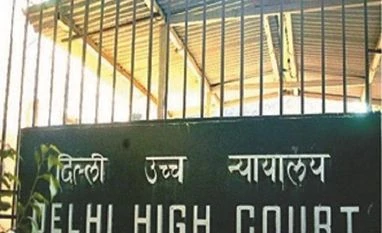The Delhi High Court Friday refused to entertain a batch of petitions seeking a Uniform Civil Code (UCC), saying the Supreme Court has already dealt with the issue and has rejected the pleas.
The high court said it cannot direct the legislature to enact a law and referred to an order of the apex court in which it was held that framing of law lies exclusively within the domain of legislature.
"The Supreme Court order is clear and categorical. We will not go beyond the Supreme Court order. They (Law Commission) don't need us. They are an authority constituted by the Constitution to do it. They will do it," a bench of Acting Chief Justice Manmohan and Justice Mini Pushkarna said.
This prompted lawyer Ashwini Kumar Upadhyay, one of the petitioners, and other petitioners to withdraw their pleas from the high court.
The high court noted that the Law Commission is already seized of the issue and if petitioners wish, they can approach the commission with their suggestions.
The high court had earlier also observed that it "cannot do anything" if the issue has already been decided by the Supreme Court and added that in March, a top court bench had already declined a plea for "gender neutral" and "religion neutral" laws filed by Upadhyay.
Also Read
In April, a division bench headed by the then chief justice had said that Upadhyay's petition was prima facie not maintainable and asked him to place before it the "prayers" made by him before apex court.
The high court was informed that in March, the top court refused to entertain petitions by Upadhyay in respect of "gender neutral" and "religion neutral" laws as it observed that the matter fell in the legislative domain and that in 2015, he had even withdrawn a plea from there in relation to UCC.
Besides Upadhyay's petition, there are four other petitions as well before the high court , which have contended that India "urgently needs a Uniform Civil Code".
The petitioners have contended that gender justice and gender equality, guaranteed under Articles 14-15 of the Constitution and dignity of women, guaranteed under Article 21 of the Constitution, cannot be secured without implementing Article 44 (the State shall endeavour to secure for citizens a UCC throughout the territory of India).
The petitions have claimed that the UCC, with a common set of rules governing every citizen of the country, will replace the personal laws, which are based on the scriptures and customs of various religious communities.
In response, the Centre has said citizens from different religions and denominations following different property and matrimonial laws is an affront to the nation's unity and the Uniform Civil Code will result in the integration of India.
It has however stated that a petition is not maintainable for formulation of the UCC as it is a "matter of policy", which has to be decided by the "elected representatives of the people" and "no direction can be issued on with regard".
The Centre has asserted it would examine in consultation with stakeholders the issue of formulating the Code after it receives the report of the Law Commission.
In May 2019, the high court had sought the Centre's response on Upadhyay's petition seeking constitution of a judicial commission to draft the UCC in order to promote national integration, gender justice and equality, and dignity of women.
(Only the headline and picture of this report may have been reworked by the Business Standard staff; the rest of the content is auto-generated from a syndicated feed.)
)